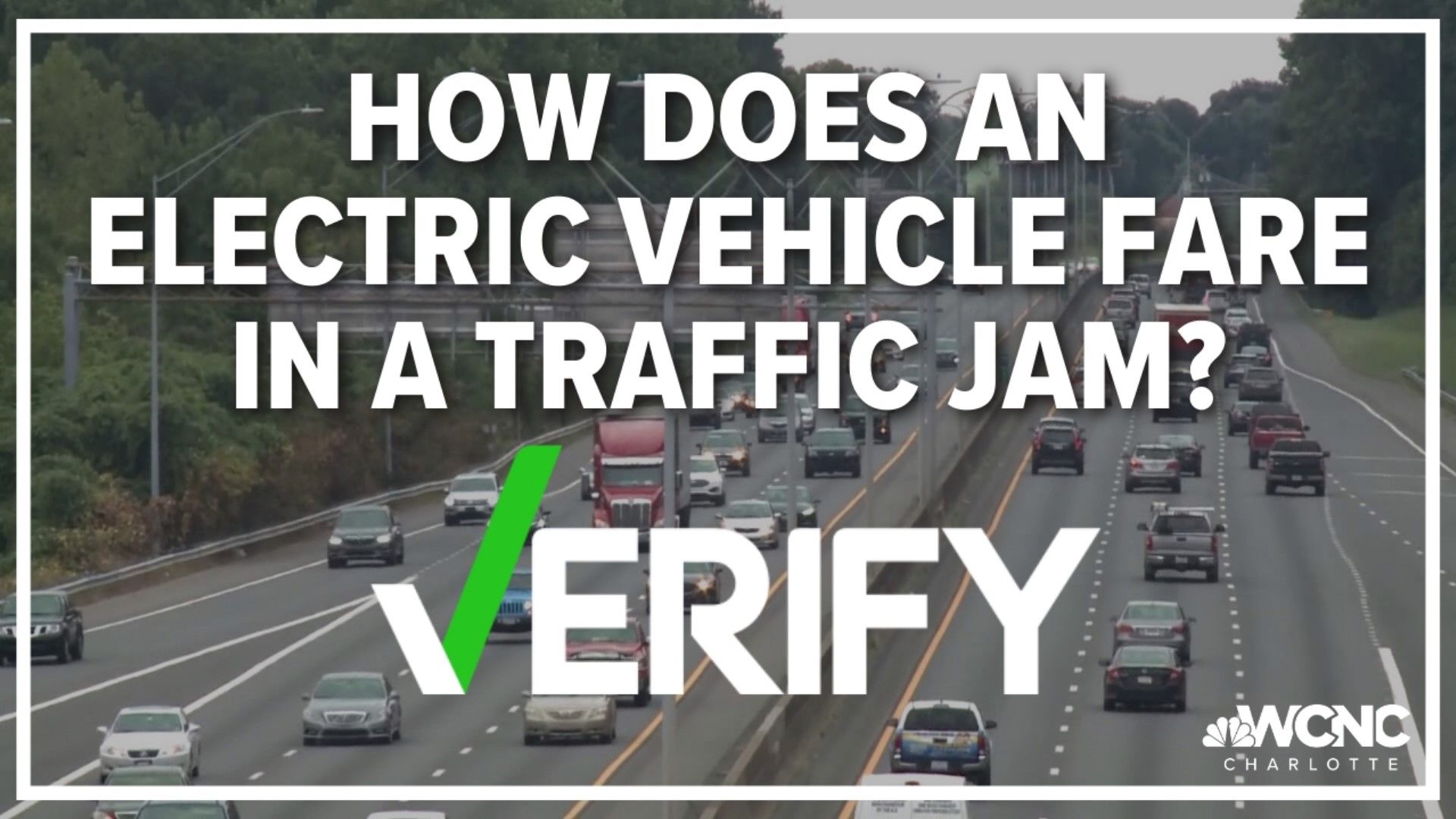CHARLOTTE, N.C. — Remember that big traffic jam on I-95 earlier this year? Thousands of motorists were stranded on the interstate, some as long as 24 hours.
PREVIOUS COVERAGE: Stranded drivers endure frigid night on impassable highway near DC
The mess had a lot of people wondering: how would an electric vehicle fare in that gridlock? Would it be able to keep a charge?
THE QUESTION
Is an electric vehicle more efficient while idling than a gas-powered car?
THE SOURCES
THE ANSWER
Yes, an electric vehicle is more efficient while idling than a gas-powered car.
WHAT WE FOUND
First, it's important to understand how an electric vehicle engine works.
Research from UTC shows most of a car's electricity, or charge, goes toward moving the vehicle forward. In some cases 50-60 kilowatts are used to propel the car.
When an electric vehicle idles, it consumes about one kilowatt.
Electricity is used to power basic electronics in the electric vehicle when it is sitting idle: things like heating and cooling systems, the radio, and power windows.
"So you're talking about very little energy being consumed by those components of the car," Cross said. "Almost all the energy being consumed by the battery is to move the electric vehicle down the road. That's what makes an electric vehicle so efficient."
Cross says an electric vehicle's range, or charge, does not dramatically decrease when sitting in traffic.
According to SDHEC, a gas-powered car wastes half a gallon of gas an hour when idling.
"When you're burning gas or diesel, only about 20% of the energy in that gas and diesel is actually going to move you down the road," Cross said. "The rest is lost in heat and exhaust. So electric vehicles are very much more an efficient way to move. It's also a more efficient way to sit in traffic."
What's more, when they are in motion, electric vehicles actually regenerate electricity when going downhill or braking.
"Imagine if you were driving your car and you went down a hill and you actually gained additional gallons of gasoline," said Cross. "That's what it's like when you drive an EV, you gain range whenever you brake, whenever you go downhill."
Cross said typically, a fully-charged electric vehicle could stay charged and idle for at least a day.
VERIFY is dedicated to helping the public distinguish between true and false information. The VERIFY team, with help from questions submitted by the audience, tracks the spread of stories or claims that need clarification or correction. Have something you want VERIFIED? Text us at 704-329-3600 or visit /verify.

